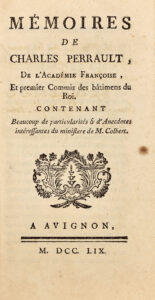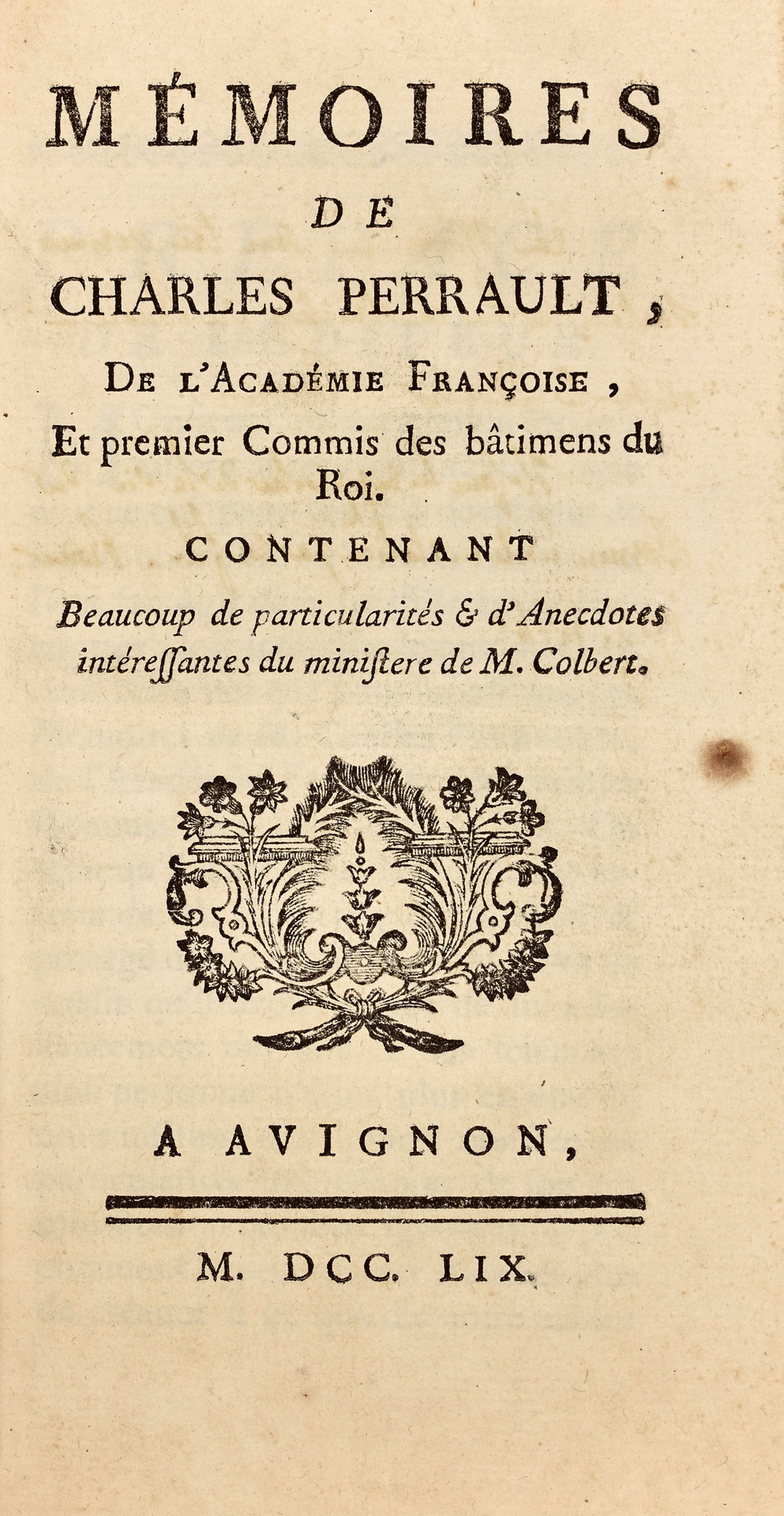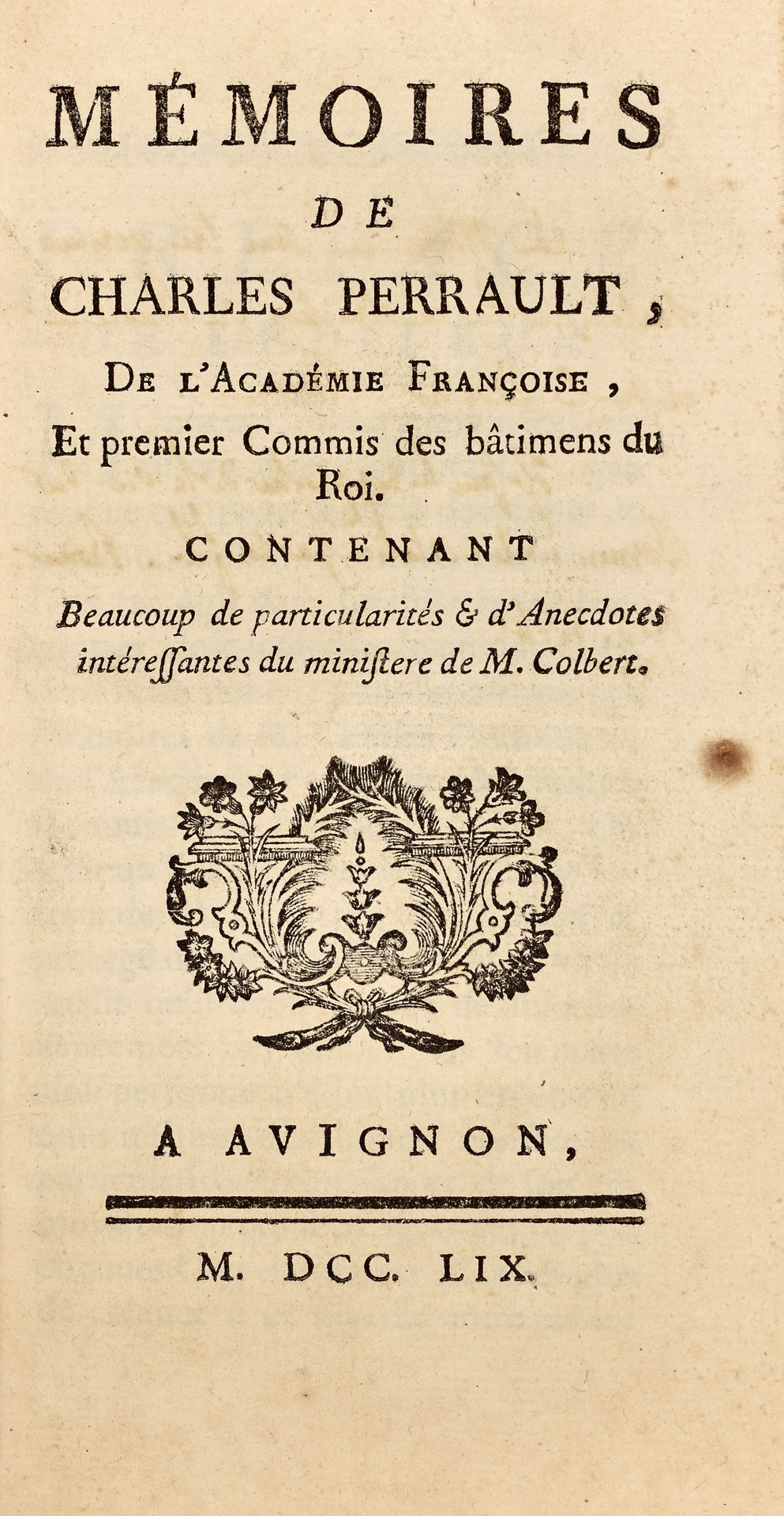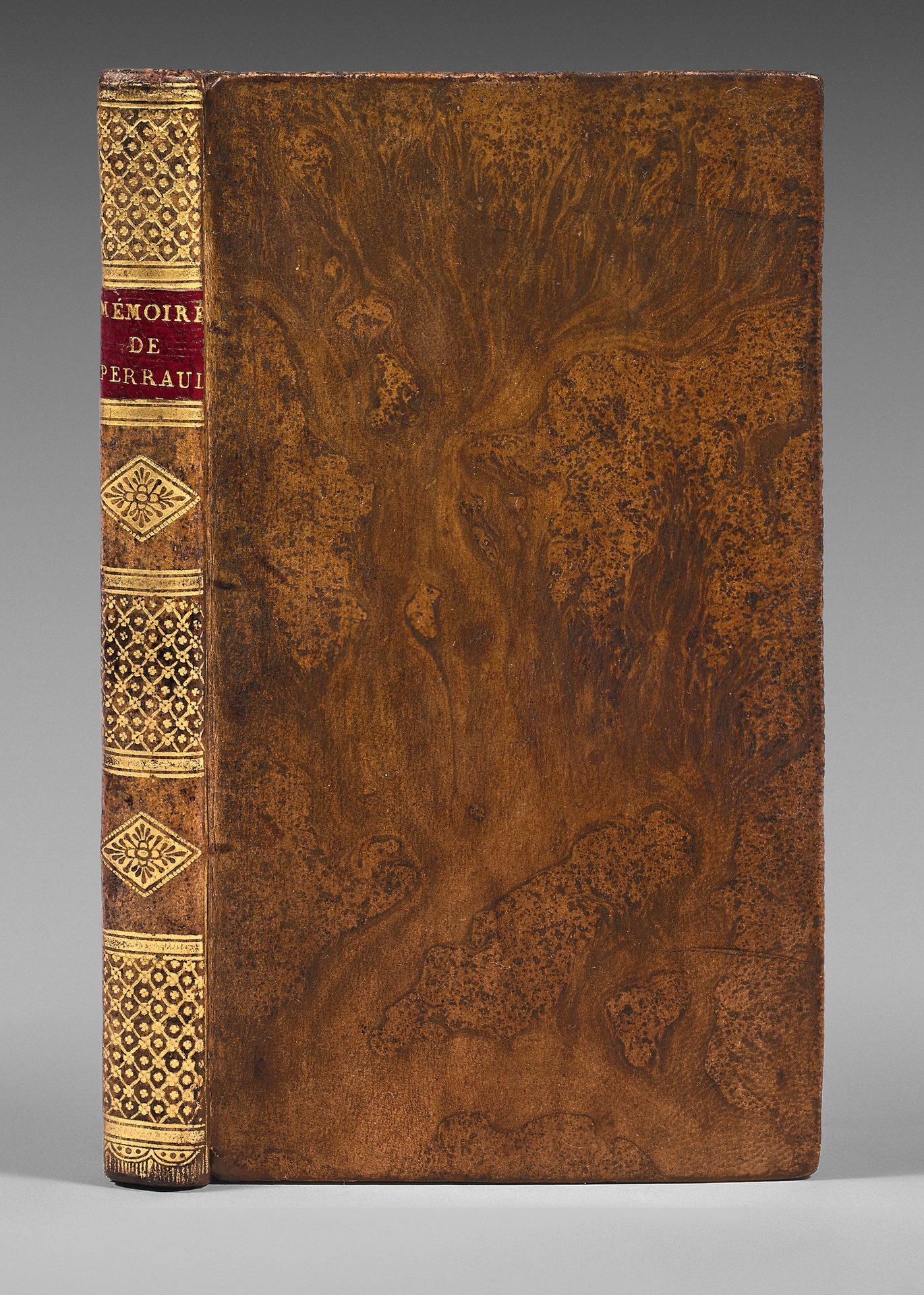Avignon, 1759.
1 volume 12mo [162 x 85 mm] of (2) ll. and 204 pages. Full marbled calf, decorated flat spine, yellow edges. Binding from the end of the 18th century.
Sought-after first edition of the Memoirs of the author of The Tales, very rare when preserved in an elegant ancient binding.
Tchemerzine, V, 188.
This first edition was reprinted in September 2010 by « Kessinger publishing ».
The Memoirs stop after the break with Colbert and were published by the architect Pierre Patte.
Originally coming from the region of Tours, but established in Paris, the Perrault family belongs to a haute bourgeoisie of Robe with a modern and Jansenist sensibility whose sons are lawyer (Jean), receiver general of finances (Pierre), architect and doctor (Claude) or doctor in theology (Nicolas).
As for Charles, if he seems to follow a banal course of a future robin (brilliant literary studies at the college of Beauvais in Paris, law degrees, and registration at the bar in 1651), he actually breaks with the school institution. Then, we see him trying to celebrate the great events of the kingdom: odes on peace on the occasion of the Treaty of the Pyrenees (1659), on the wedding of Louis XIV and Marie-Therese (1660), on the birth of the Dauphin (1661), with a controversial literary talent (by Racine) but with a growing political success, to the point of appearing soon to the young King and his administrators as a great choice to carry out the cultural project of the reordering of France; while he is committed to the superintendence of the royal buildings, Perrault who has proved again his encomiastic science (Discours sur l’acquisition de Dunkerque par le roi… 1663), is appointed, on the recommendation of Chapelain, secretary of the Petite Academy (future Académie des inscriptions et des belles-lettres).
He is elected to the French Academy (1671) of which he became Chancellor at the death of Seguier (1672) and redefines its rules of operation. Its effectiveness is once again such that, in the same year, Colbert creates for him a tailor-made position (the general control of the buildings).
After the death of Colbert (1683), he is dismissed from his position of Controller General and excluded from the Petite Académie by Louvois; only remained Director of the Academy, he is de facto placed in an almost total retreat at the age of fifty-five.
Charles Perrault then devotes himself to the education of his children (he is a widower since 1678), but more importantly resumes and deepens a religious reflection (Épître chrétienne sur la pénitence, praise of Louis XIV protector of the Catholic religion, 1683, ode Aux nouveaux convertis, 1685, etc.), which will prove to be the ethical base of the upcoming Quarrel of the Ancients and the Moderns. As evidenced by his consultation with two religious, former moderates, Bossuet and Huet, about his Saint Paulin évêque de Nole (1686), epic in six songs that appears to be followed by an epistle to Fontenelle, Le Génie. On January 27, 1687, the public reading of the Siècle de Louis XIV by Charles Perrault, to the glory of the Moderns, caused a quarrel between the Ancients and the Moderns to burst, whose stakes exceed the controversies of their respective leaders, Boileau and himself. In fact it will result in the reconciliation (1694) of those who probably were “differently of the same opinion” (Boileau). Over the course of the quarrel appear the four volumes of the Parallèles des Anciens et des Modernes (1688 to 1697), in which Perrault delivers the theoretical sum of his positions while proposing at the same time a double parable of his reflection on the world order: on one hand, in theological form, La Création du monde (1691), which became Adam ou la Création de l’homme, sa chute et sa réparation… (1697), and on the other hand, in an apparently naive form, the Contes en vers or Contes ou Histoires du temps passé (1691 to 1697).
Very interesting memoirs, rare when preserved in an elegant ancient binding.




